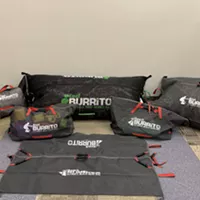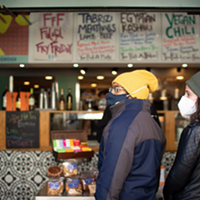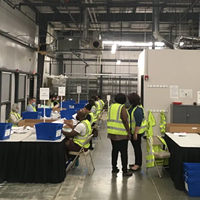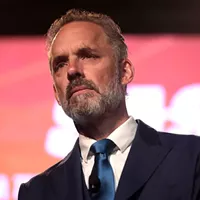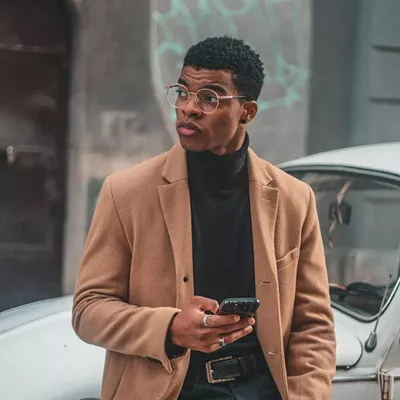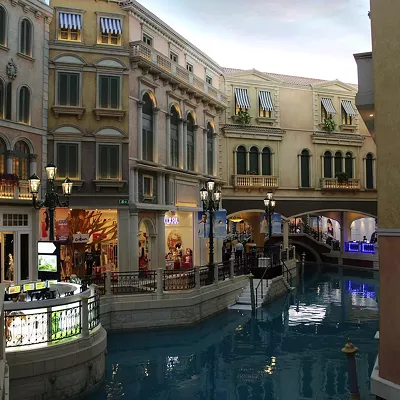Q&A with James Tyson
Tyson and Bree Newsome were thrown into the national spotlight after June 27 action in South Carolina
By Ryan Pitkin @pitkin_ryanCharlotte-area activist James Tyson is no stranger to being thrown in jail for what he believes in. He's been arrested for activist activities during the Democratic National Convention in Charlotte in 2012 and again during Moral Monday activities in Raleigh in 2014.
What's new to him, however, is being thrown into the national media spotlight for such action. But once Tyson was arrested alongside Bree Newsome, also of Charlotte, after she climbed a flagpole and removed the Confederate flag on South Carolina state Capitol grounds on June 27, 2015, that's where he found himself.
Tyson had taken a year off of activist work to focus on his Charlotte-area farm and personal life leading up to the flag action, but said he felt called to "something bigger than myself" after being contacted by a group of about 10 Charlotte activists who organized and carried out the flag removal.
When Creative Loafing caught up with Tyson on Friday afternoon, he had just arrived back in Charlotte from a national media blitz that saw him and Bree making appearances on Good Morning America, MSNBC's All In with Chris Hayes and Comedy Central's The Nightly Show, among others.
Tyson was visibly exhausted when Creative Loafing met with him at his home, and his usually energized speaking voice was subdued. Still, Tyson spoke for nearly an hour about the action he and Newsome took part in, the risks involved and why they felt it was important to take those risks.
Creative Loafing: What brought you out of your activism hiatus?
James Tyson: I had a friend who tried to call me all weekend, and I was kind of ignoring his calls, because he's one of those guys that when he calls, you know he wants you to do something that you probably don't really want to do. (laughs)
Finally on a Sunday afternoon I was driving back from the beach and answered and he said, "Can you drive by Columbia? Are you alone?" When I said I wasn't, he said, "I'll just meet you in Charlotte tomorrow." As soon as he said that I said, "Oh no." I had a pretty good guess.
He came to my house. He showed me the plan. He had been there already, scouted it out and took close pictures of the flag. The entire nation thought it was locked to that flagpole. It turns out, that was just a weight, a swivel clasps. Once we saw that, I realized that it was doable in a way that we could do it without damaging the flag, so the risks of retaliation go down, and the risk of destruction of property wasn't even present anymore. That's when I realized it was possible, but even more so, I realized this was plucking at a heartstring for me that was much bigger than probably any work I've ever done.
Why does the flag need to come down?
I understand the conversation around southern heritage. I was born in the South, I've got North Carolina tattooed on my arm, I love the South and I love this state, I love the land down here and I love the people down here. But when you're talking about the Confederate flag in particular, the flag is a hate symbol. Not only is it a treasonous flag, but it is a hate symbol. I don't even like to have the conversation about it being treasonous because it ignores and takes out of context the conversation about racism. It disempowers that conversation so we never have the conversations we need to have, which is about racism in America. The reason I felt compelled to get involved with this is because racism in America is perpetuated by white people. Being an informed white person, I feel like I have moral obligation to try to dismantle it.
Going back to the historical context of the Confederacy, the reasons they seceded from the Union was because of that disagreement over the universal rights of man. It's not that the North was a shining example at the time, but even the threat of that was enough to make them secede. There were all those economic circumstances going on at that time, but lets face it, it really was about slavery; Bree's ancestors in bonds versus not in bonds. So that's really the 150 year narrative. Millions of people died because they got themselves involved in a treasonous act. People died for it. I respect that people died for it on both sides, and I respect those people that died. Fast forwarding, the flag died away around the turn of the century into the '50s. It wasn't until the civil rights movement in the '60s that, as a reaction to the civil rights movement, the abolition of Jim Crow, the flag resurged then as a symbol. It resurges as a symbol of essentially segregation, which is racism, which is hatred, which is terror and violence against black America. That flag might symbolize for some people their heritage but I would call into question what they're really valuing at that point. It's a hate symbol.
Even as white liberals, we're apologists for racism sometimes. We're too confronted by it to really want to have the conversations to propel the dismantling of racism as an institution. At the root of it, these are the things that were going through my head, and the more I listed to people like Bree talk about it, the more I was convinced it was the right thing to do.
There's no possible way to say that we've moved past racism. Even as individuals, we haven't moved past it. It's critical that we actually start doing the hard work that we need to do, taking a stance and educating ourselves.
What were your thoughts on your latest media blitz?
Mainstream media loves to twist things anyway they possible can. The editors of these big corporations aren't even sitting in the room but they get the final cut on everything. When they actually air the conversation, it might have been 15 minutes long but it turns into a 20 to 30 second sound bite. That was one thing. I know that already because I've done some media before locally. You kind of expect a film crew will do that but it was still a shock. A lot of our core messaging, the mainstream media did not want to hear it, they just cut it right out. Those are the real reasons why we did what we did, the conversation about race in America, about white supremacy and racism in general, those are the core issues. The individual people who did them aren't that important. We could've picked any other white guy in the room.
Now, with Amy Goodman (of Democracy Now!), that was by far my favorite interview, because not only is she a bit of a personal hero to me but she did the most in depth interview. She really drilled into the story behind why we did what we did. Not just like, "Oh, they scaled a flagpole," but she was more into, "Why did you do this?"
Have you personally felt threatened or like a target since taking the flag down?
Mainly at this point, just Internet trolls, which sometimes makes me grit and grind my teeth, but that's not a big deal. My dad said one time that a man that wont admit his fear is either a fool or dead, and he's right. I will tell you that, yes, these guys do scare me, because what they've been using as their tool of oppression, whether it's white allies that take a stand against racism, or black people that say they want equality, they use violence to scare people into submission. They have done this historically. So when I see just an internet troll making a snide comment, it doesn't even matter about what, that makes me worry because I don't know whether this guy is the next Dylan Roof, or whether he's this close to driving down my driveway and shooting into my house.
The big difference between something we did and something like a church burning: these people are working in the cover of night, they're not showing their true identity. What me and Bree did is we stood out and said, "This is us, this is what we're going to do and we're going to take responsibility for it. We're not going to back down from it." People will know who we are, and if that means we become targets then we become targets and we live with that, and we learn to navigate around that. That doesn't mean that we stop anything, we keep moving forward and we keep pressing.
Bree said something about how SJA were often blamed for the issues but really what we're doing is asking the questions.
The flag was put back up about 45 minutes after Bree took it down, were you hoping it would stay down?
We didn't think it was critical that the flag would stay down. We knew that it was likely it would go back up, but I think we also thought there was a possibility that if everybody in the government, or pretty much everyone, was saying it was time to come down, that if we took it down for them, they would be confronted with a situation where they were actually saying we need to take it down, but they would have to raise it again. Nikki Haley shouldn't have that honor [of taking the flag down]. There is no honor when it comes to that for her. She's doing it because her hands are tied. She's not doing it because it's the right thing to do. So to back up, we really just wanted to point to the absurdity of that and the hypocrisy of [raising it back up].
How important is the symbolism of race in this particular action?
We had a black woman climb it and pass it down to a white man, regardless of whether that was me or anybody else, that symbolism is critical. We wanted to create the opportunity for all people to see that they could be empowered even in the face of fear and retaliation and violence that they could do the right thing, that there isn't going to be things that stop them.
Where does the dialogue go from here?
With having the white guy there, what that does is it sends the message to White America in a lot of ways and that's what my role was talking to. What we have to do is critically put skin in the game. We have to risk our own comforts, step outside our comfort zones. Force the conversations, at home and outside of or homes, with our friends, with our coworkers, with our families, and have those difficult conversations that challenge racism and white supremacy when we see it, even when its subtle, because structural racism is so ingrained in our system that it's almost always subtle. Its veiled in the guise of something like a Confederate flag vs. the overt nature of the N-word or something like that. We don't always see it for what it is but when we start paying attention, we see that it's actually going around us all the time on a regular basis, whether the media is talking about thugs and equating black people to thieving bandits. I think it's important moving forward, what I would like to do, is to help more white people do the right thing and I would like to provide that example.
White supremacy and racism is perpetuated by white people, so the only way it's really ever going to end is if we end it. We can't expect black people to end racism. It's something that we created, something that our forefathers created. That doesn't mean that we shouldn't elevate the black people that are willing to challenge it directly. We've got to metaphorically draw swords and say, "This is the line."
You've spoken about being treated well in jail following the flag action. Were you surprised?
That was really surreal. I mean, I've been in jail before for activism and during the DNC, and I was treated really badly. Usually I've been treated well by the Charlotte Mecklenburg Police Department, but the Sheriff's Office then, they were not nice to me. Down there in the jail (in Columbia), an important thing to remember is that 90 percent of people in Columbia are black, which means that almost all the guards are black. We were literally getting handshakes from guards. The warden came and shook our hands. It was one of those surreal moments where I did not expect that at all. I was expecting any other jail experience, but the reality of it is, the black people who live down there have had to drive by that flag every single day, every single time they see it they see it as a symbol of hate and they've been wanting it to come down for so long.
How does this action relate to efforts from activists in Charlotte?
Culturally we're taught, even as a white person, we're taught not to challenge racism. When our friends make racist jokes or say the N-word or show favoritism in some way or the other racially, we don't call it out. As good southern boys, we're kind of taught not to. Charlotte is a perfect example of that. Charlotte might be a liberal city, but it's a perfect example of how you ain't supposed to stir up the hornet's nest. Even with the environmental activism done around here, nobody wants to get on board because at the end of the day they think it's creating unnecessary trouble. In reality the situation is, particularly with racism in the South, the trouble is already there, the trouble is there and maybe it's amplified because your friend did drop the N-bomb. If we don't call that out, if we don't work to change that behavior, we'll be stuck with it forever.
Many people have stepped up to help raise funds for your upcoming legal battle? Beyond that, Michael Moore offered to pay all Bree's legal fees and (South Carolina Senate Minority Leader) Todd Rutherford will now be representing her pro-bono. What will happen with the money already raised?
There was $130,000 that was raised, and that's being put into a third party trust. Whatever is not used in our defense, that money will be doled out to every other Black Lives Matter activist that ended up in jail or with charges that needs support or help. That third party will decide where it goes. We're not ever going to see that money. It doesn't go to us, our families or an NGO of our choice. That's going to stay within the community to keep on doing good work. That's actually one of things that I'm proud of with that. I'm so thankful to the people who contributed because we now have the opportunity to make something bigger happen. I don't mean like taking down the next flag, I mean really forcing the questions.
What did you take from this experience?
As an activist, I was inspired. I was inspired by Bree and I was inspired by the rest of the crew. I was surprised at my own courage. I didn't see it until a couple days ago, but I realized that Bree is a hero to me, and she'll always be a hero to me. It's one of those things that, until a couple days ago, it was just Bree; she's just a person I work with. But going through that media circuit with her in particular and hearing her talk so eloquently over and over and over again and hearing her drilling in the points, it was such an inspiration to see. And then I had some time to reflect on it and I kept on looking at that picture of her holding that flag, and I realized what an important moment that is for America, it's almost bringing tears to my eyes right now just talking about it.
Also, what I've had an opportunity to put in context is that we all, whether we come from very educated backgrounds with good families, maybe even parents that have been involved with civil rights movement, which is kind of my background, I've learned that there is so much that I've picked up from our culture, where I carry racism around within me as well. And so by dismantling racism within our society, you actually have to start identifying what is within you and how you have been furthering racism versus dismantling it. I get to reflecting about all the things in my past where maybe I was an asshole and didn't realize it or maybe I just didn't understand. This has allowed me to understand a little bit more and do some personal work on myself.
There were times when I've been small in my thinking, just in moments thinking "Oh, why are they asking her all the questions." Then I remember, when another black woman comes and hugs her on the street and thanks her for what she did. I remember how critically important it is that we elevate her voice, and people like her. There are not many heroes like her, and I will gladly take a backseat for that.
Speaking of...
Latest in News Feature
More by Ryan Pitkin
-
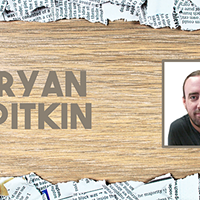
You're the Best... of Charlotte
Oct 27, 2018 -
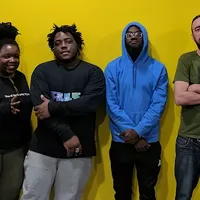
Listen Up: Cuzo Key and FLLS Go 'Universal' on 'Local Vibes'
Oct 25, 2018 -
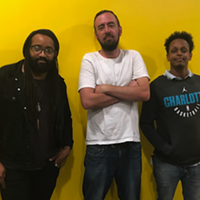
Listen Up: KANG is Back and Bla/Alt on 'Local Vibes'
Oct 18, 2018 - More »
Calendar
-
 Cirque du Soleil: OVO @ Bojangles' Coliseum
Cirque du Soleil: OVO @ Bojangles' Coliseum -
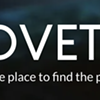
Coveted Luxury Watches
-

TheDiscountCodes
-

Queen City R&B Festival & Day Party @ Blush CLT
-
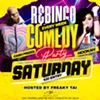
R&B Music Bingo + Comedy Show @ Blush CLT






